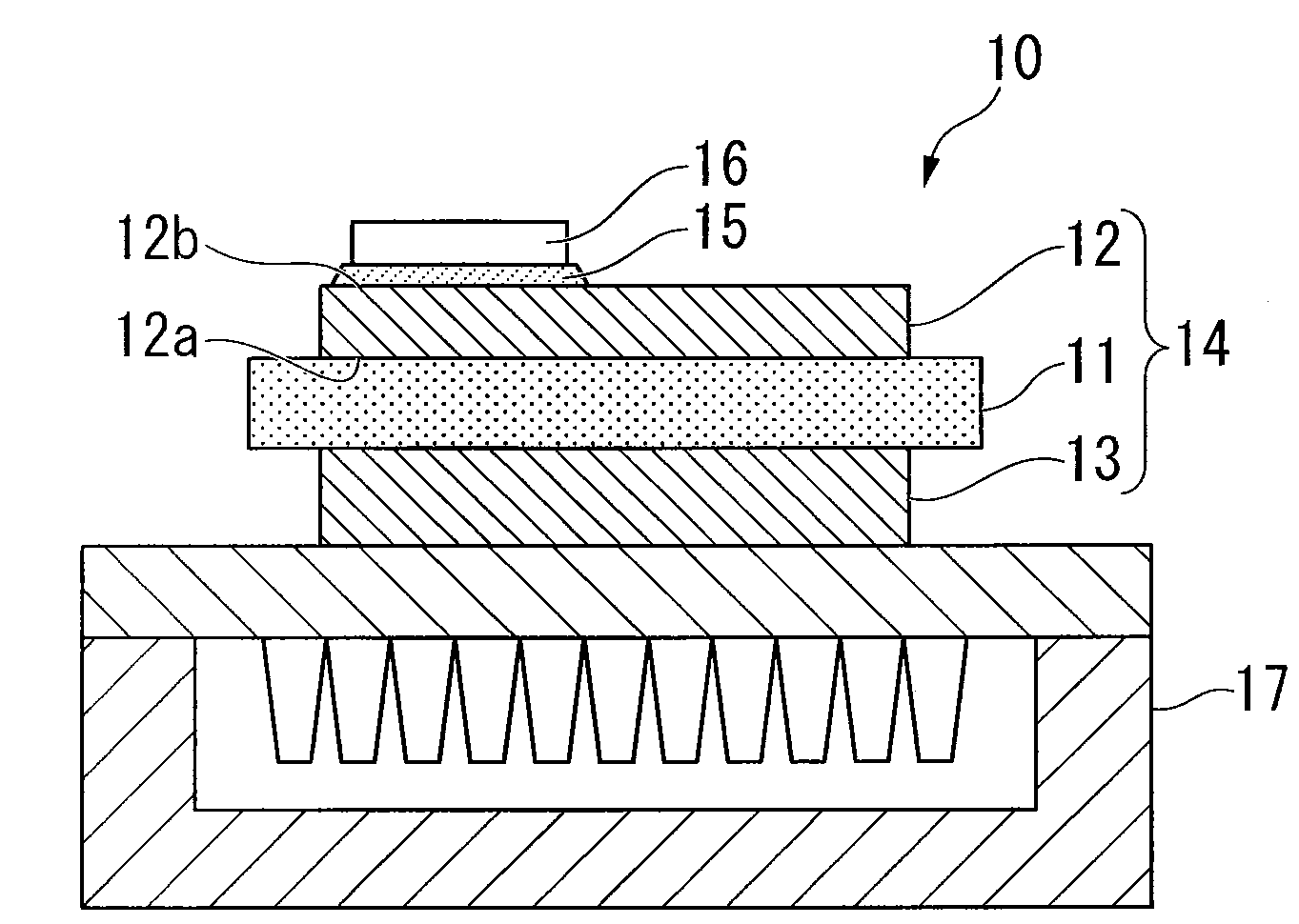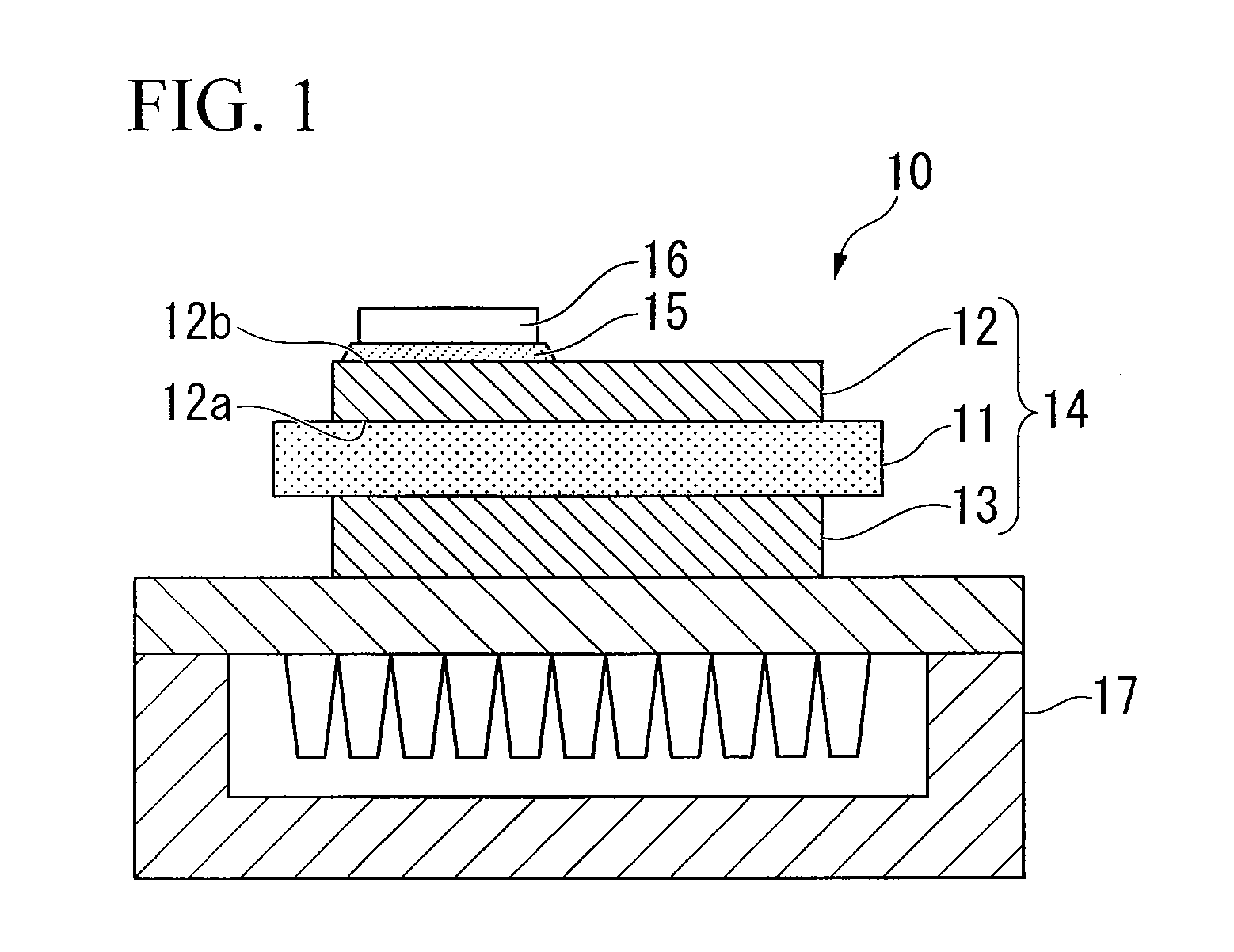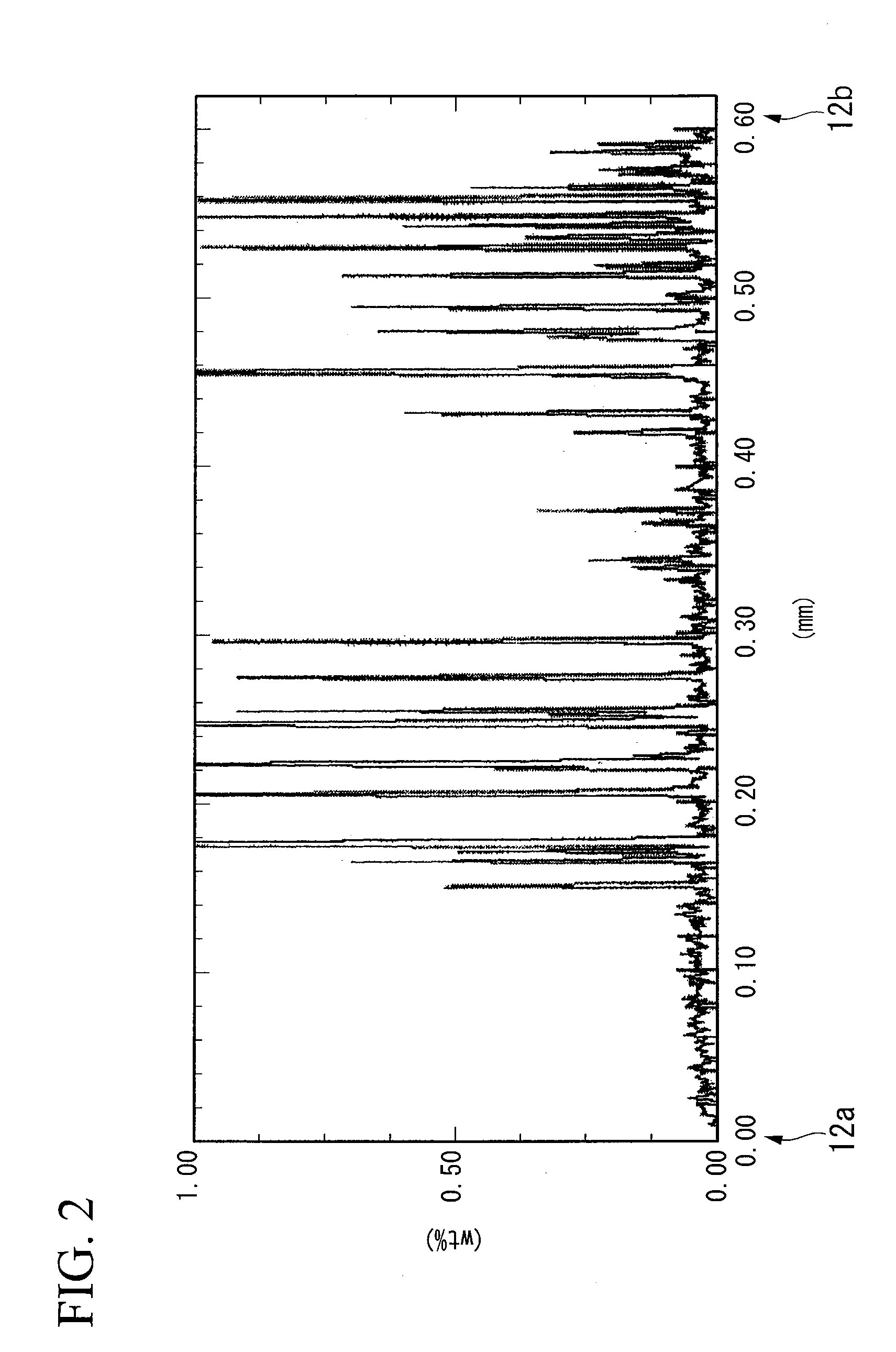Power element mounting substrate, method of manufacturing the same, power element mounting unit, method of manufacturing the same, and power module
a technology of mounting substrate and power element, which is applied in the direction of conductive pattern formation, circuit layer/solid-state device details, lighting and heating apparatus, etc., can solve the problems of difference in flexural rigidity of circuit layer and cooler, easy cracking of solder layer between circuit layer and power element, and easy cracking of solder layer during heat cycle. , the effect of preventing the generation of warping during the formation of the power element mounting uni
- Summary
- Abstract
- Description
- Claims
- Application Information
AI Technical Summary
Benefits of technology
Problems solved by technology
Method used
Image
Examples
Embodiment Construction
[0125]Referring now to the drawings, embodiments of the invention will be described. FIG. 1 is an overall view of a power module in which a power element mounting substrate according to an embodiment of the invention is used.
[0126]This power module 10 includes a power element mounting substrate 14, a semiconductor chip (power element) 16 and a heat sink 17. In the power element mounting substrate 14, a circuit layer 12 is brazed to a front surface of a ceramic plate 11 and a metal layer 13 is brazed to a back surface of the ceramic plate 11. The semiconductor chip (power element) 16 is soldered to a front surface of the circuit layer 12 via a solder layer 15. The heat sink 17 is brazed or soldered to a surface of the metal layer 13.
[0127]The ceramic plate 11 may be made of AlN, Al2O3, Si3N4 and SiC. The heat sink 17 may be made of pure Al, pure Cu, Al alloy, or Cu alloy. The solder layer 15 may be made of a lead-free solder material such as Sn—Ag—Cu-containing material. A brazing ma...
PUM
| Property | Measurement | Unit |
|---|---|---|
| Fraction | aaaaa | aaaaa |
| Fraction | aaaaa | aaaaa |
| Thickness | aaaaa | aaaaa |
Abstract
Description
Claims
Application Information
 Login to View More
Login to View More - R&D
- Intellectual Property
- Life Sciences
- Materials
- Tech Scout
- Unparalleled Data Quality
- Higher Quality Content
- 60% Fewer Hallucinations
Browse by: Latest US Patents, China's latest patents, Technical Efficacy Thesaurus, Application Domain, Technology Topic, Popular Technical Reports.
© 2025 PatSnap. All rights reserved.Legal|Privacy policy|Modern Slavery Act Transparency Statement|Sitemap|About US| Contact US: help@patsnap.com



